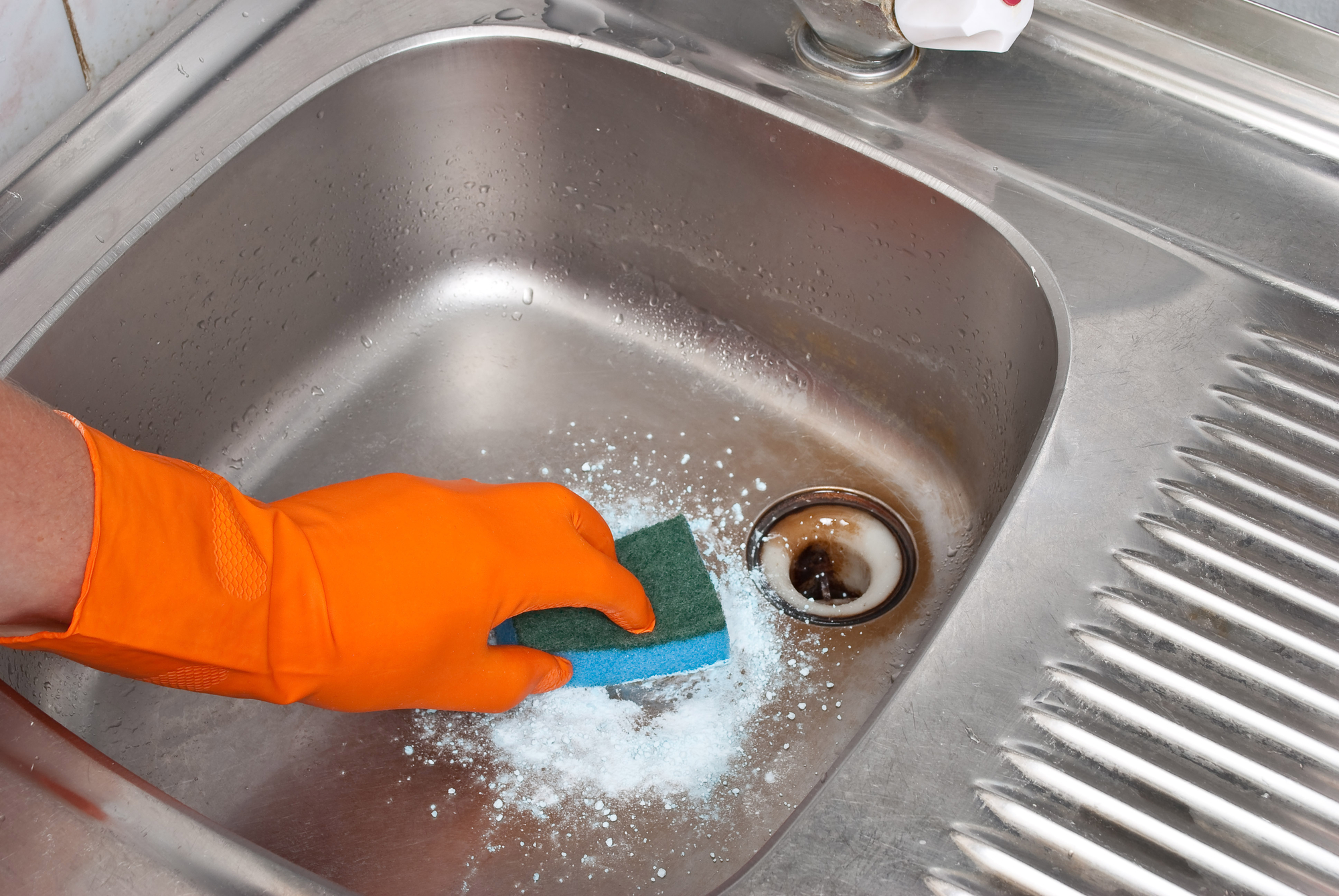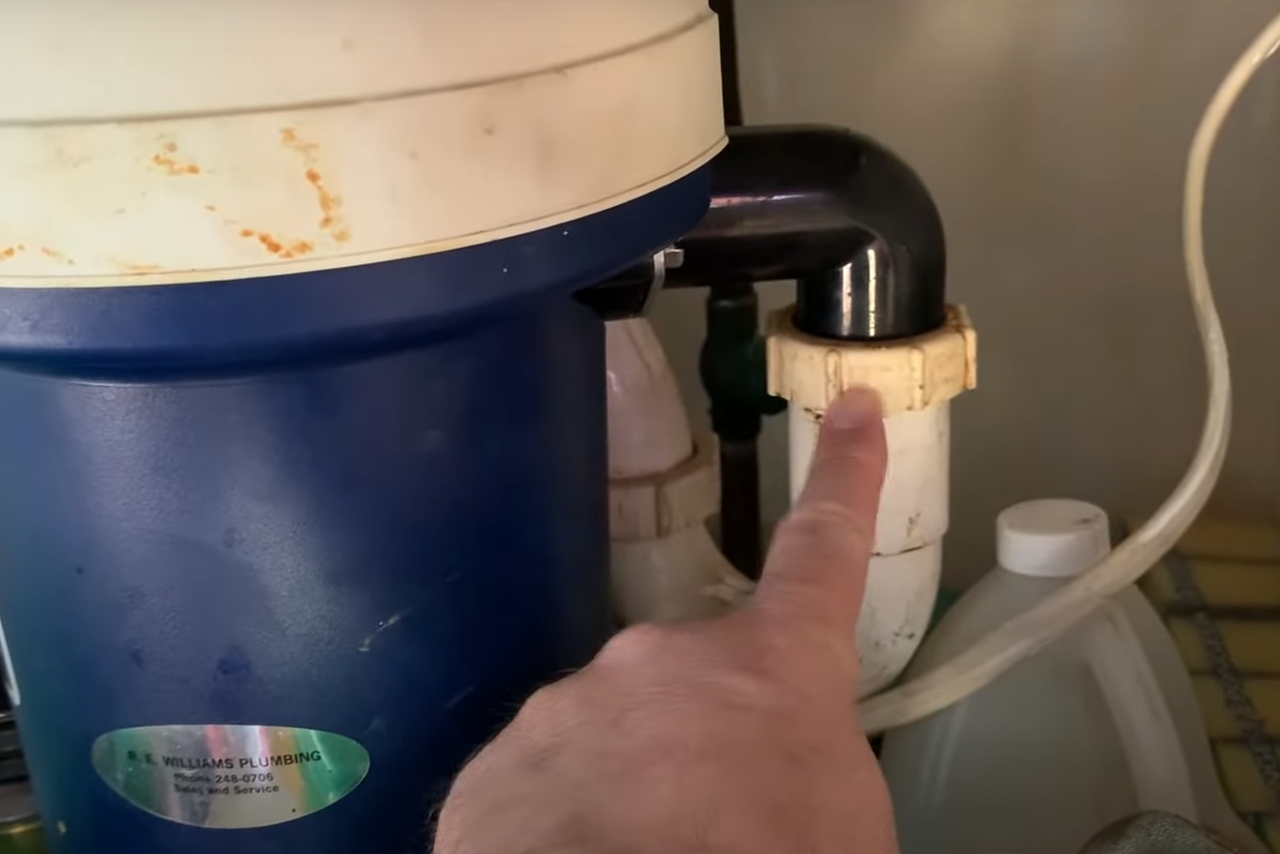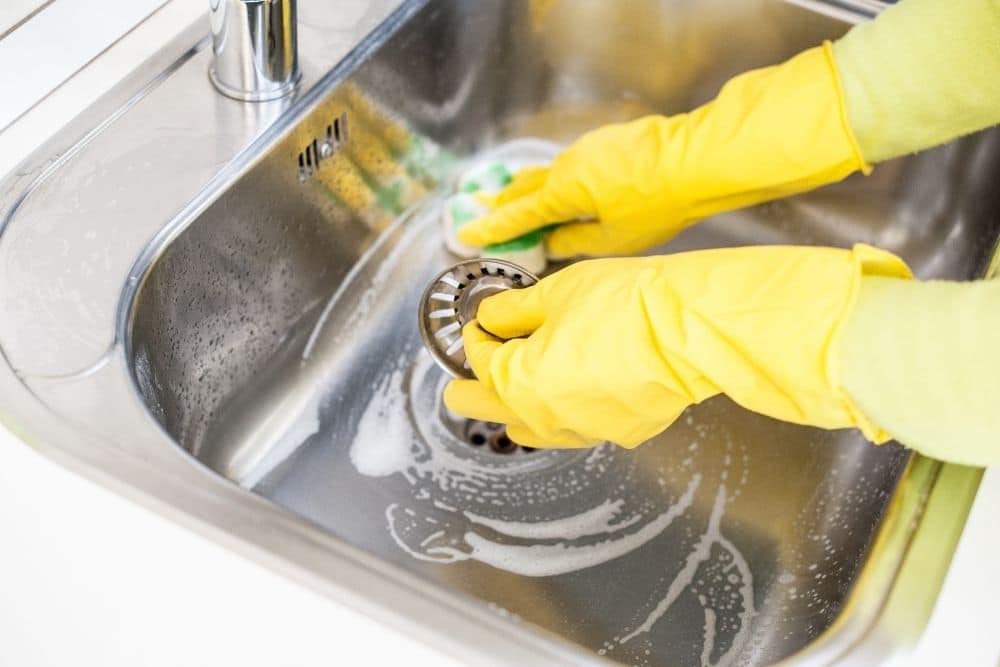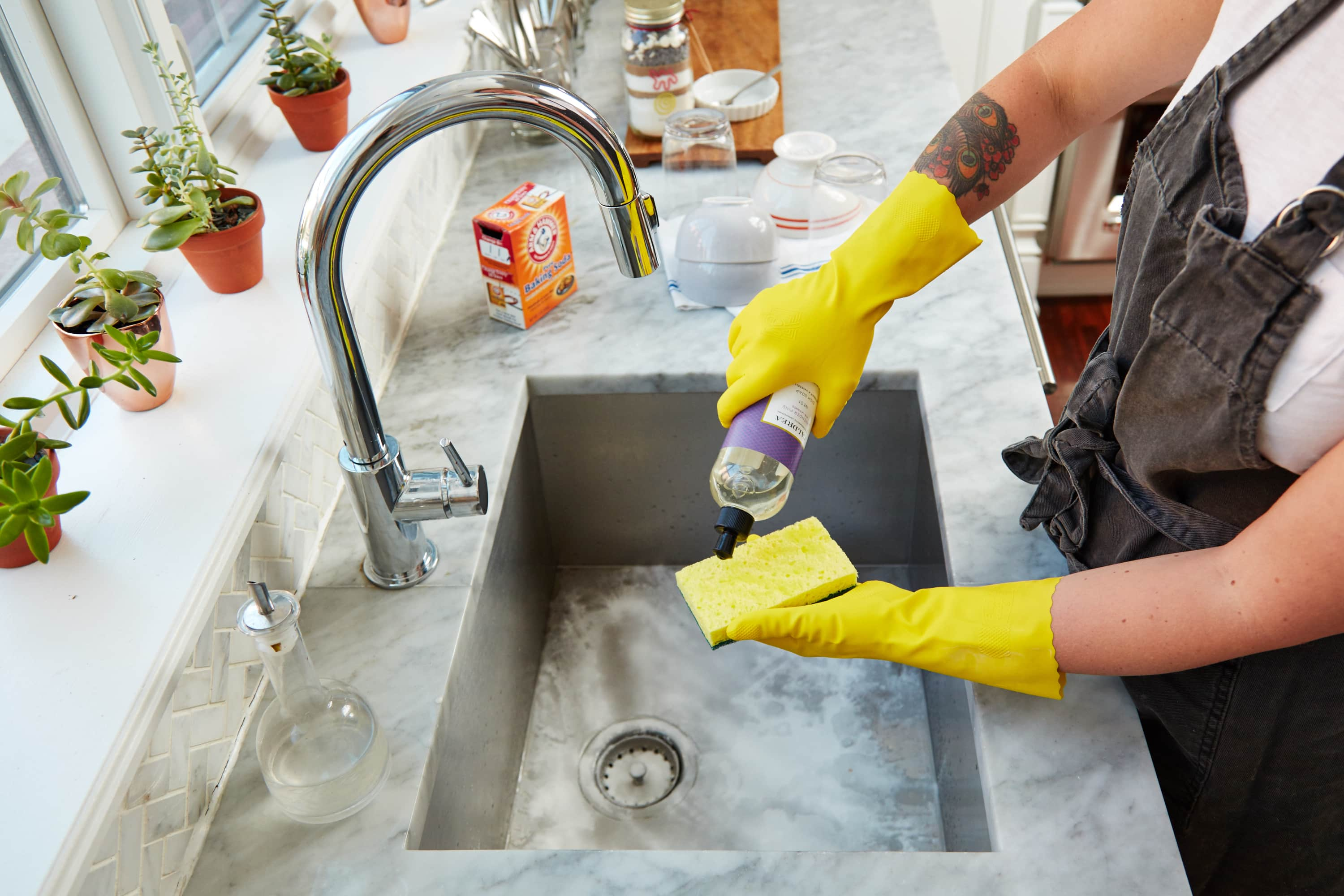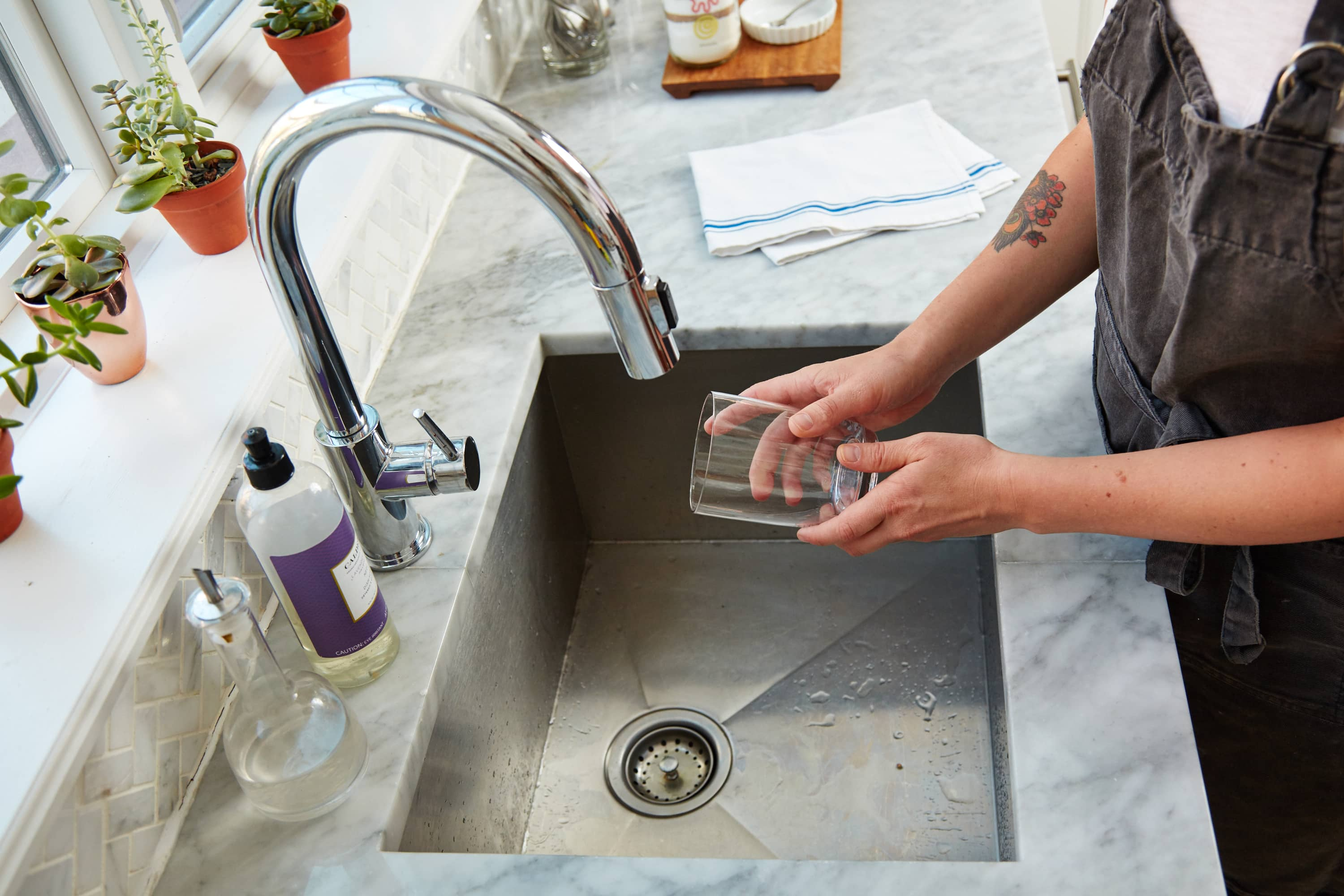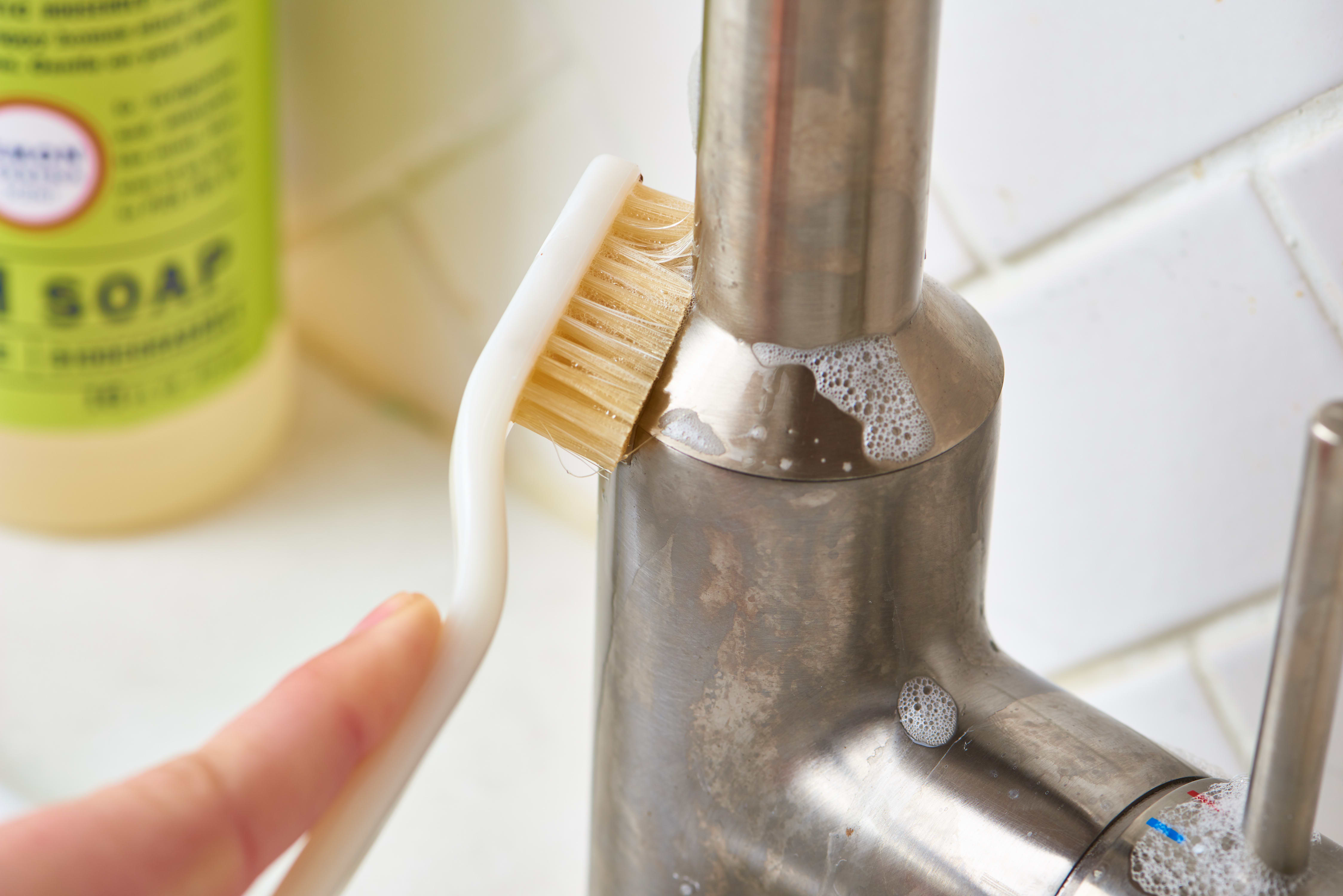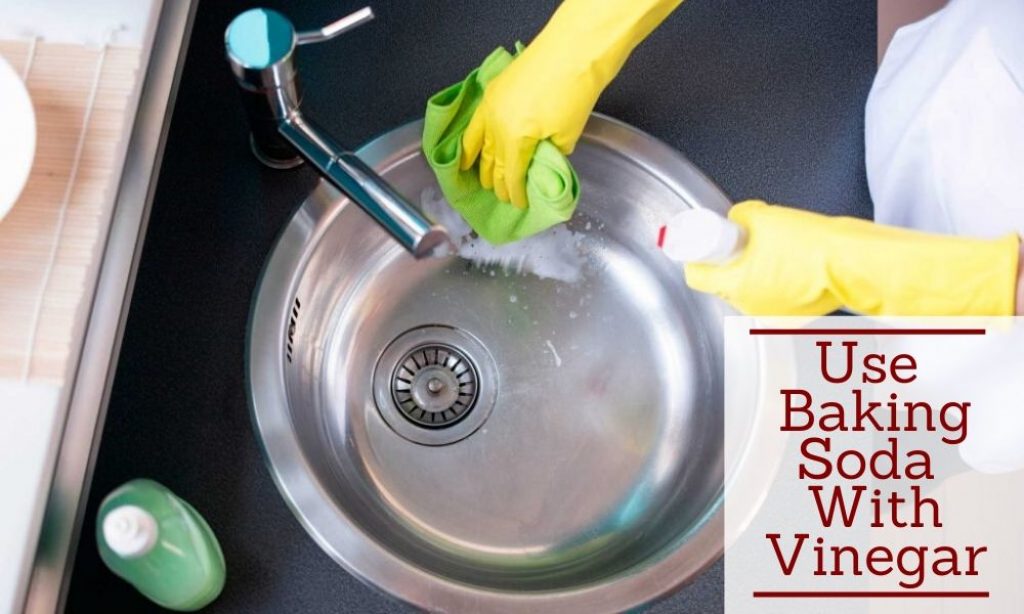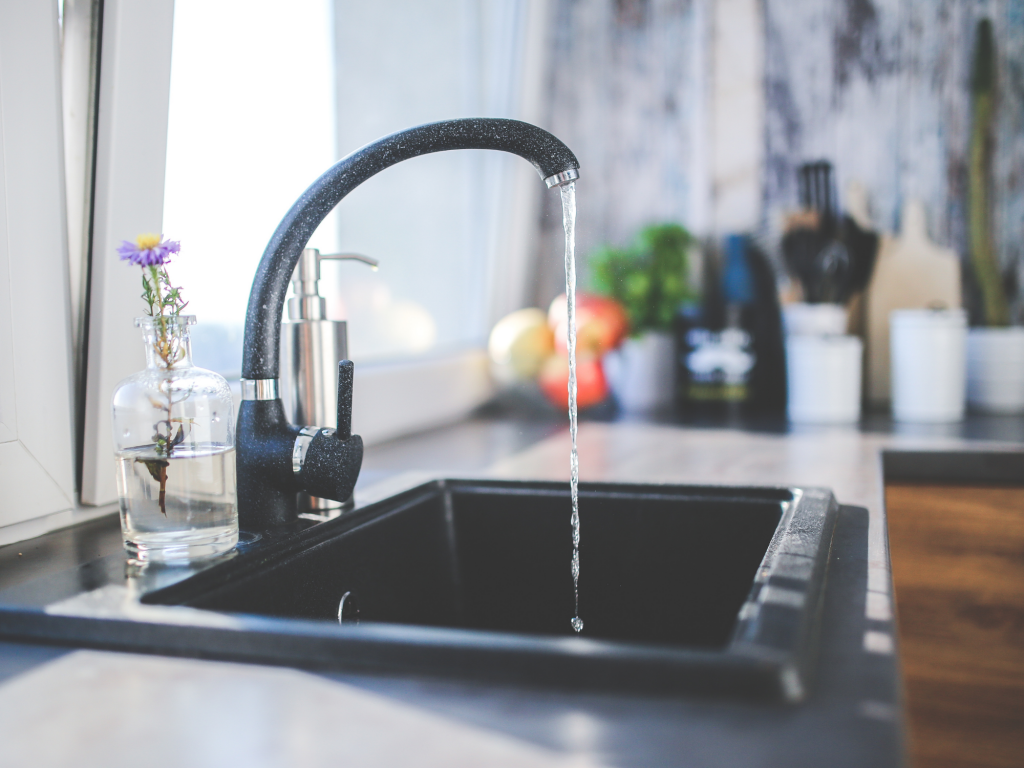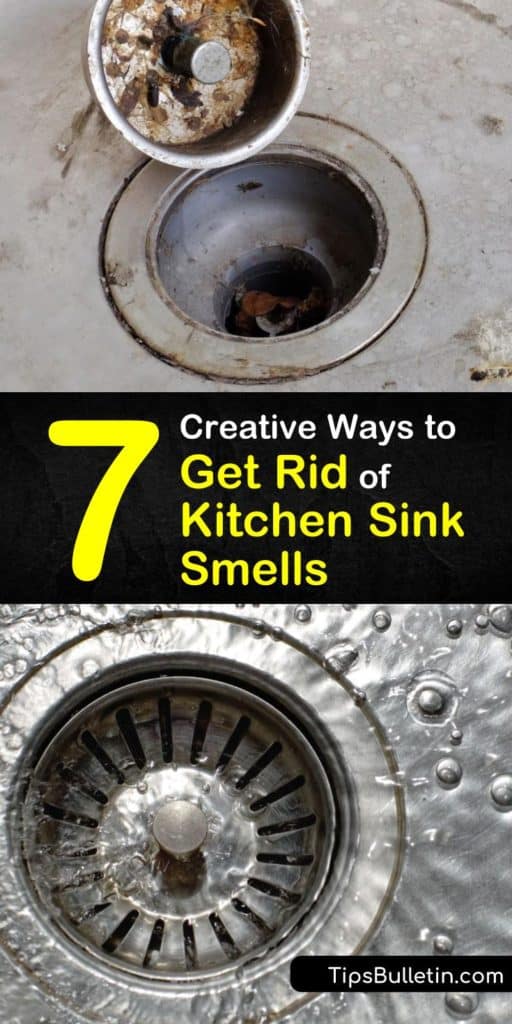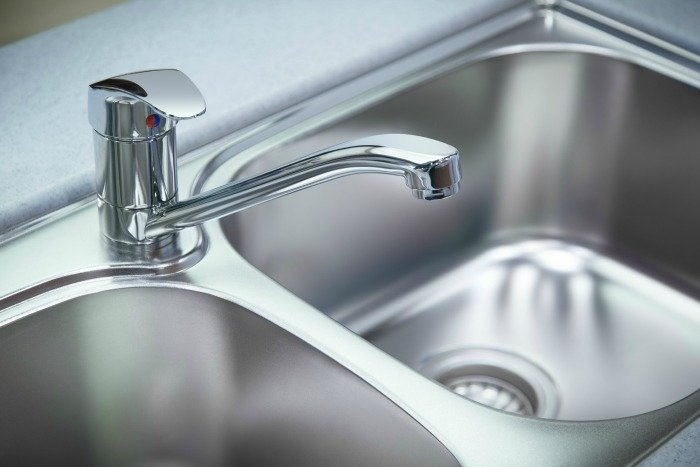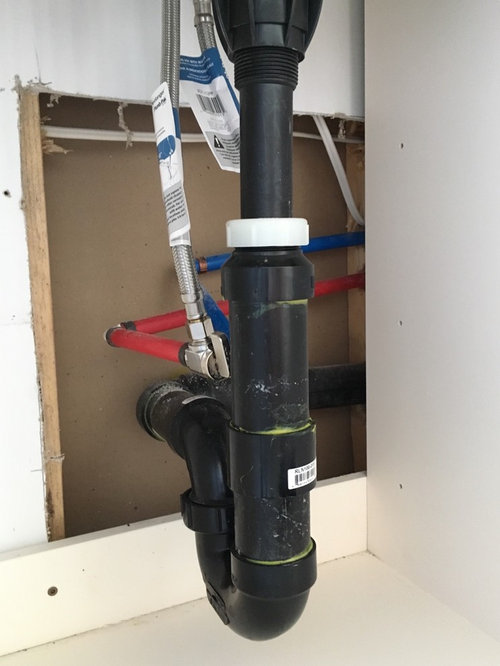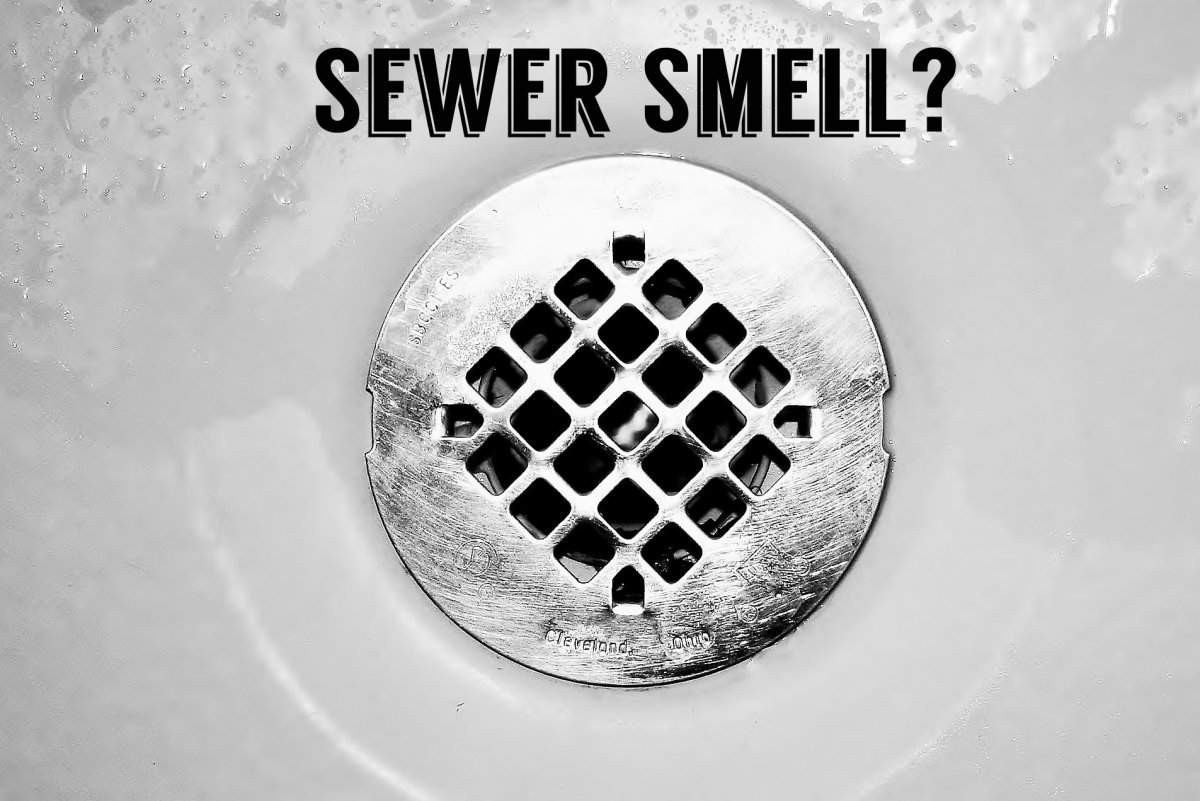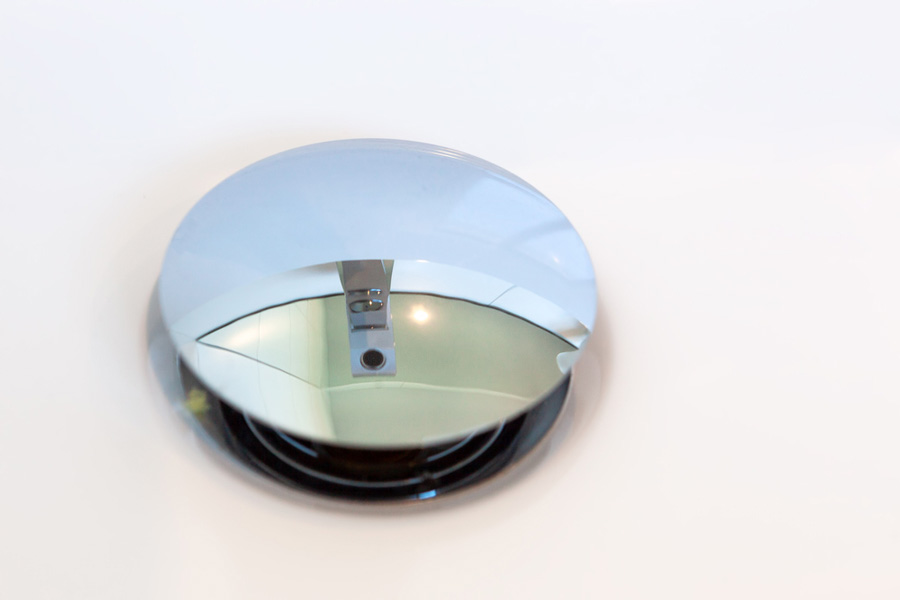If you've noticed a foul odor coming from your kitchen sink, you're not alone. This is a common problem that many homeowners face and can be caused by a variety of factors. One of the main reasons for a smelly kitchen sink is food particles and debris that get stuck in the drain. Bacteria and mold can feed on these particles, causing a buildup of unpleasant odors. Another cause could be a clog in the pipes, which can trap food and organic matter, leading to a stinky sink. 1. Causes of a Smelly Kitchen Sink
Now that you know what may be causing the smell, it's time to get rid of it. One quick and easy solution is to pour boiling water down the drain. This can help to break down any food particles and flush them out. You can also try using a combination of baking soda and vinegar. Simply pour a cup of baking soda down the drain, followed by a cup of vinegar. Let it sit for 15 minutes, then rinse with hot water. This can help to eliminate any odors and also clean your pipes.2. How to Get Rid of a Smell in the Kitchen Sink
There are various odors that can come from your kitchen sink, each with their own specific cause and solution. For example, a musty smell could indicate a buildup of mold or mildew in the pipes. In this case, you may need to use a specialized cleaner to remove the mold and eliminate the odor. A rotten smell may be a sign of a clogged drain, and using a plunger or drain snake can help to remove the blockage and get rid of the smell.3. Common Kitchen Sink Odors and Their Solutions
If you prefer to use natural solutions, there are several DIY options for getting rid of a smelly kitchen sink. One of these is using lemon and salt. Cut a lemon in half and sprinkle salt on the cut side. Use the lemon to scrub the sides of the sink and the drain. This can help to remove any buildup and leave your sink smelling fresh. You can also try using essential oils, such as peppermint or tea tree oil, which have antibacterial properties and can help to eliminate odors.4. DIY Solutions for a Smelly Kitchen Sink
Regularly cleaning and deodorizing your kitchen sink is key to preventing smelly odors. To clean your sink, use a mixture of dish soap and hot water to scrub the sink and remove any grime. You can also use a baking soda paste to scrub the sides of the sink and the drain. To deodorize, try using a mixture of lemon juice and hot water, or a few drops of your favorite essential oil. Remember to also clean your garbage disposal regularly, as this can also contribute to a smelly sink.5. How to Clean and Deodorize Your Kitchen Sink
Aside from using natural DIY solutions, there are also other natural remedies for a smelly kitchen sink. One of these is using citrus peels. Cut up citrus peels, such as lemon, lime, or orange, and put them down the drain. Turn on the hot water and the peels will help to freshen up your sink. Another option is using white vinegar and baking soda. Pour a cup of baking soda down the drain, followed by a cup of white vinegar. Let it sit for 15 minutes, then rinse with hot water.6. Natural Remedies for a Smelly Kitchen Sink
Prevention is key when it comes to avoiding a smelly kitchen sink. One of the best ways to prevent odors is to avoid putting certain items down the drain, such as coffee grounds, grease, and large chunks of food. Instead, scrape your dishes and plates into the trash before washing them. You can also run hot water down the drain after each use to help flush out any food particles. Regularly cleaning your sink and garbage disposal can also help to prevent odors from building up.7. Tips for Preventing Kitchen Sink Odors
If you've tried DIY and natural remedies but still can't get rid of the smell, it may be time to call in a professional. A plumber can inspect your pipes and drains to determine the root cause of the odor. They may use specialized tools, such as a camera, to identify any clogs or buildup. They can also offer professional cleaning and deodorizing services to eliminate any stubborn odors and keep your kitchen sink smelling fresh.8. Professional Solutions for a Smelly Kitchen Sink
If the smell coming from your kitchen sink resembles a sewer smell, there may be a more serious issue at hand. This could be caused by a damaged or broken sewer line, which can allow sewer gas to enter your home. Another cause could be a dry P-trap, which is the U-shaped pipe under your sink that traps water and prevents sewer gas from entering your home. If you notice a sewer smell in your kitchen sink, it's important to call a professional plumber to address the issue.9. Common Causes of a Sewer Smell in the Kitchen Sink
If none of the above solutions seem to be working, it may be time to troubleshoot and fix the problem. This could involve checking the P-trap for any clogs or damage, checking the garbage disposal for any stuck food particles, or inspecting the pipes for any leaks or damage. If you're unsure of how to troubleshoot and fix the issue on your own, it's best to call a professional for assistance. In conclusion, a smelly kitchen sink is not only unpleasant but can also be a sign of a larger issue. By understanding the causes and using the appropriate solutions, you can eliminate odors and keep your kitchen sink smelling fresh and clean. Remember to regularly clean and maintain your sink to prevent odors from building up, and don't hesitate to call a professional if the issue persists. With these tips, you can say goodbye to a smelly kitchen sink for good.10. How to Troubleshoot and Fix a Smelly Kitchen Sink
The Importance of Proper Ventilation in Kitchen Design
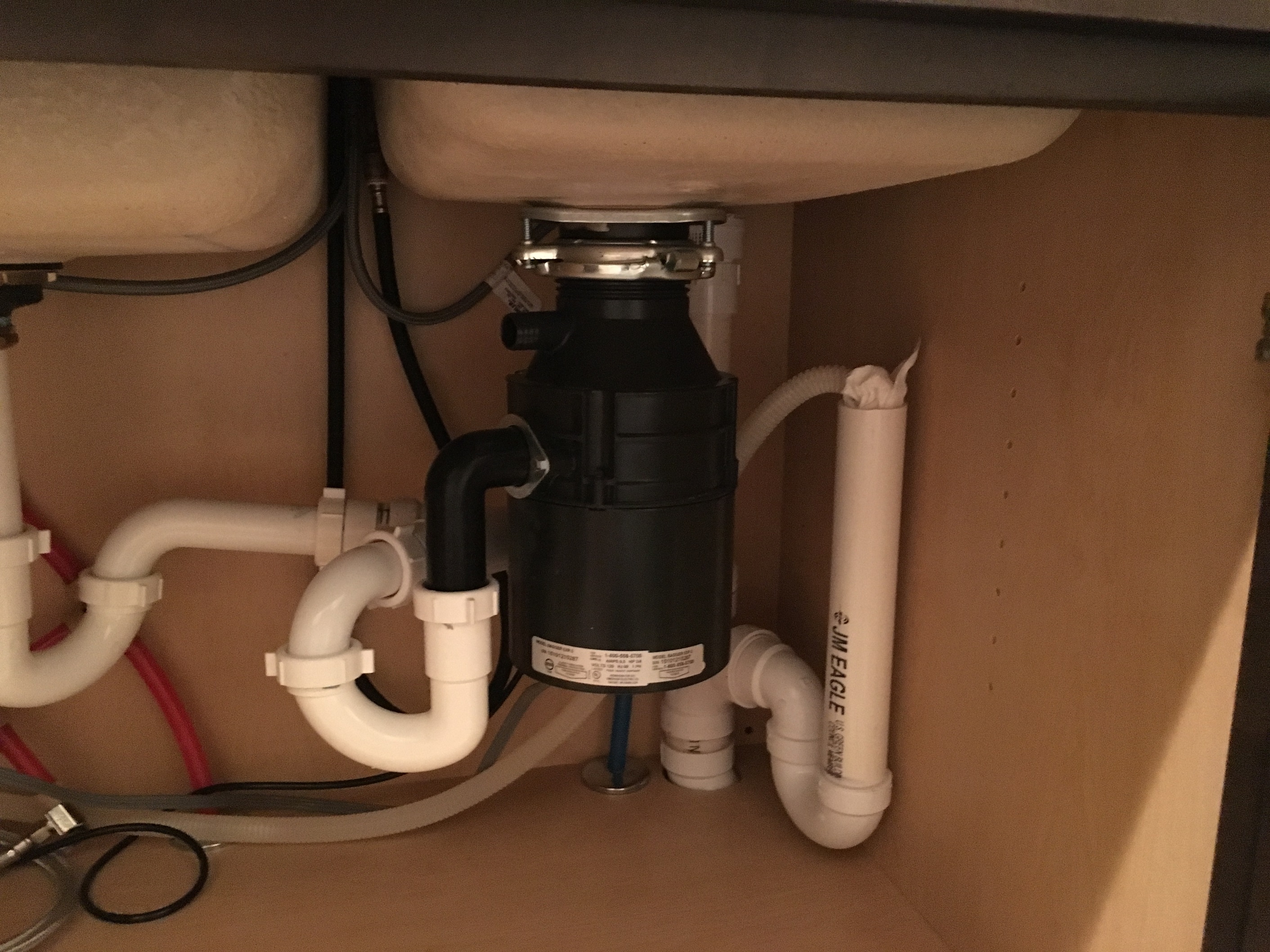
Eliminating Unpleasant Odors from the Kitchen Sink
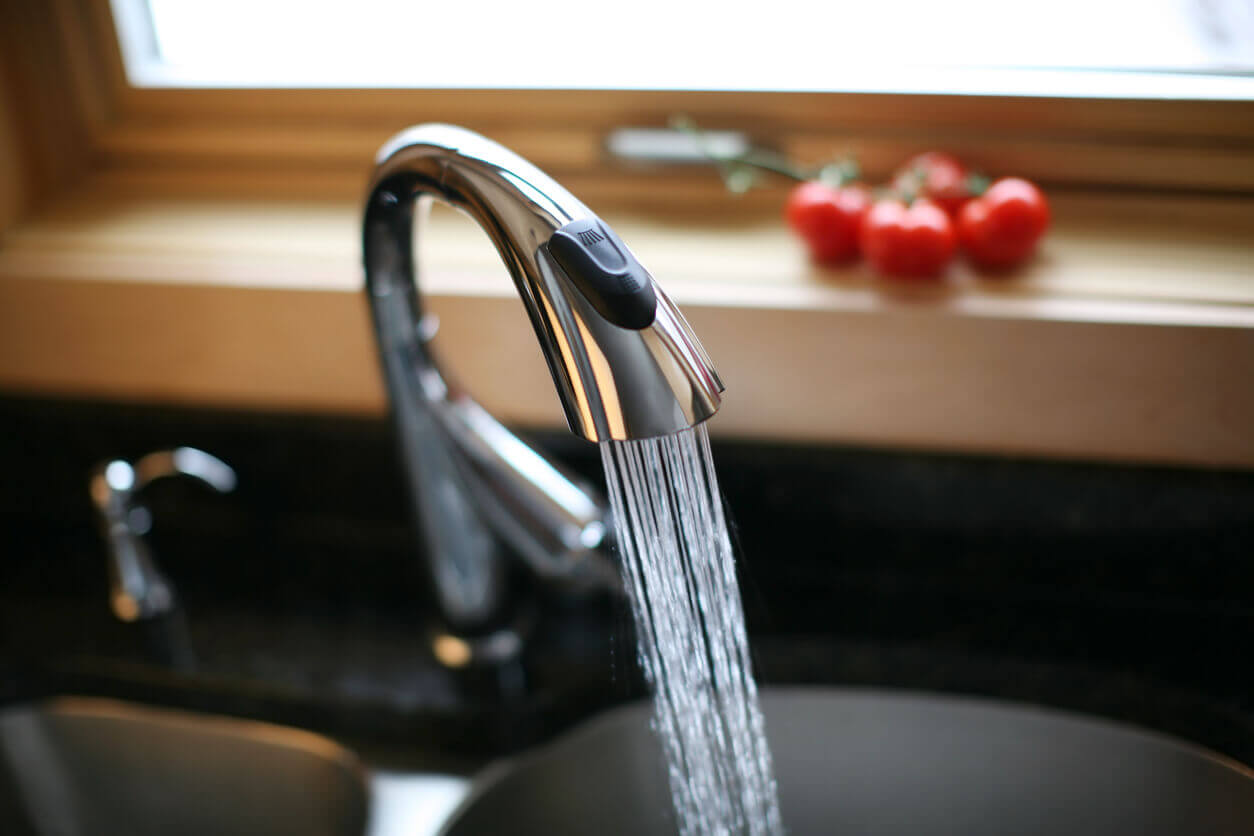 When designing a kitchen, many homeowners focus on the aesthetics and functionality of the space. However, one crucial aspect that is often overlooked is the ventilation system. Proper ventilation is essential in any kitchen, not only for maintaining a comfortable temperature but also for eliminating unwanted smells, including that notorious smell from the kitchen sink.
The unpleasant smell from the kitchen sink is a common problem that can occur due to various reasons, including food scraps, grease buildup, and clogged pipes. Not only is it unpleasant to experience, but it can also be a health hazard if left unaddressed.
One way to prevent this issue is to ensure that your kitchen has proper ventilation. This includes having a range hood or exhaust fan installed above the stove to remove cooking fumes and odors. Additionally, installing a vented range hood can also help to remove excess moisture, preventing the growth of mold and mildew.
Moreover, it is essential to have a properly functioning plumbing system. A clogged or damaged pipe can lead to unpleasant smells emanating from the kitchen sink. Regularly cleaning and maintaining your plumbing can help prevent this issue.
Another aspect to consider is the placement of your kitchen sink. If possible, try to place it near a window or under a vent for optimal air circulation. This will also allow natural light to enter the space, making it feel brighter and more inviting.
In addition to proper ventilation, there are a few other measures you can take to eliminate the smell from your kitchen sink. Regularly cleaning and disinfecting your sink and garbage disposal can help keep it smelling fresh. You can also try using natural remedies such as baking soda and vinegar to remove any lingering odors.
In conclusion, proper ventilation is crucial in kitchen design, not only for maintaining a comfortable and healthy environment but also for eliminating unpleasant smells from the kitchen sink. By incorporating a range hood or exhaust fan, regularly maintaining your plumbing, and keeping your sink clean, you can ensure that your kitchen remains a pleasant and inviting space for cooking and entertaining.
When designing a kitchen, many homeowners focus on the aesthetics and functionality of the space. However, one crucial aspect that is often overlooked is the ventilation system. Proper ventilation is essential in any kitchen, not only for maintaining a comfortable temperature but also for eliminating unwanted smells, including that notorious smell from the kitchen sink.
The unpleasant smell from the kitchen sink is a common problem that can occur due to various reasons, including food scraps, grease buildup, and clogged pipes. Not only is it unpleasant to experience, but it can also be a health hazard if left unaddressed.
One way to prevent this issue is to ensure that your kitchen has proper ventilation. This includes having a range hood or exhaust fan installed above the stove to remove cooking fumes and odors. Additionally, installing a vented range hood can also help to remove excess moisture, preventing the growth of mold and mildew.
Moreover, it is essential to have a properly functioning plumbing system. A clogged or damaged pipe can lead to unpleasant smells emanating from the kitchen sink. Regularly cleaning and maintaining your plumbing can help prevent this issue.
Another aspect to consider is the placement of your kitchen sink. If possible, try to place it near a window or under a vent for optimal air circulation. This will also allow natural light to enter the space, making it feel brighter and more inviting.
In addition to proper ventilation, there are a few other measures you can take to eliminate the smell from your kitchen sink. Regularly cleaning and disinfecting your sink and garbage disposal can help keep it smelling fresh. You can also try using natural remedies such as baking soda and vinegar to remove any lingering odors.
In conclusion, proper ventilation is crucial in kitchen design, not only for maintaining a comfortable and healthy environment but also for eliminating unpleasant smells from the kitchen sink. By incorporating a range hood or exhaust fan, regularly maintaining your plumbing, and keeping your sink clean, you can ensure that your kitchen remains a pleasant and inviting space for cooking and entertaining.





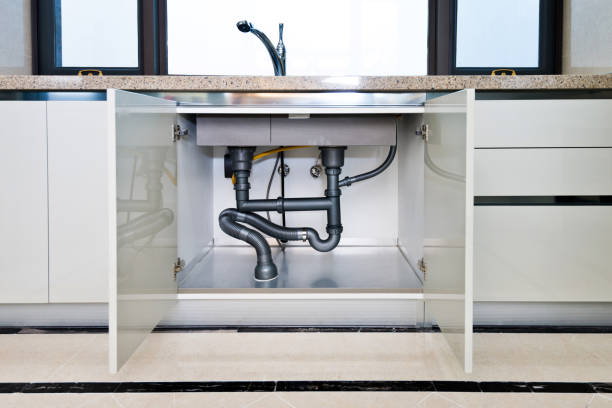
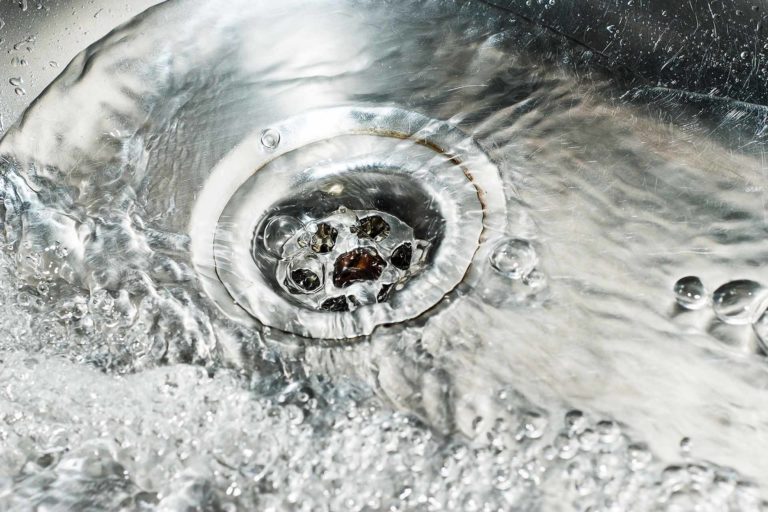
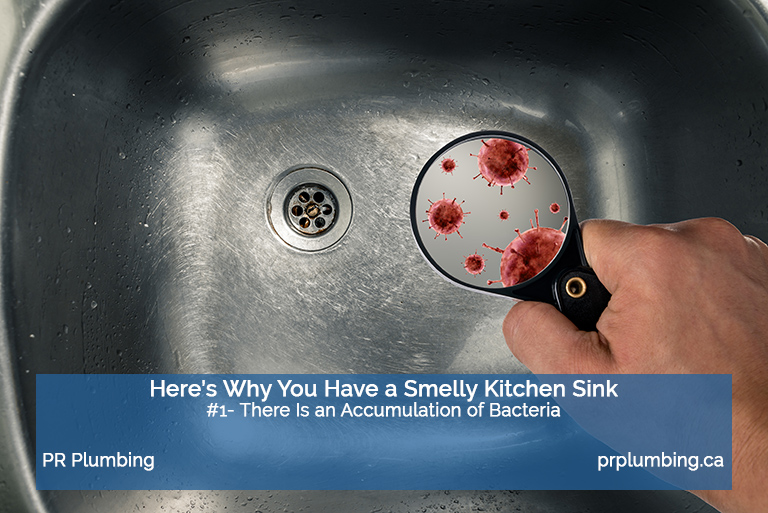


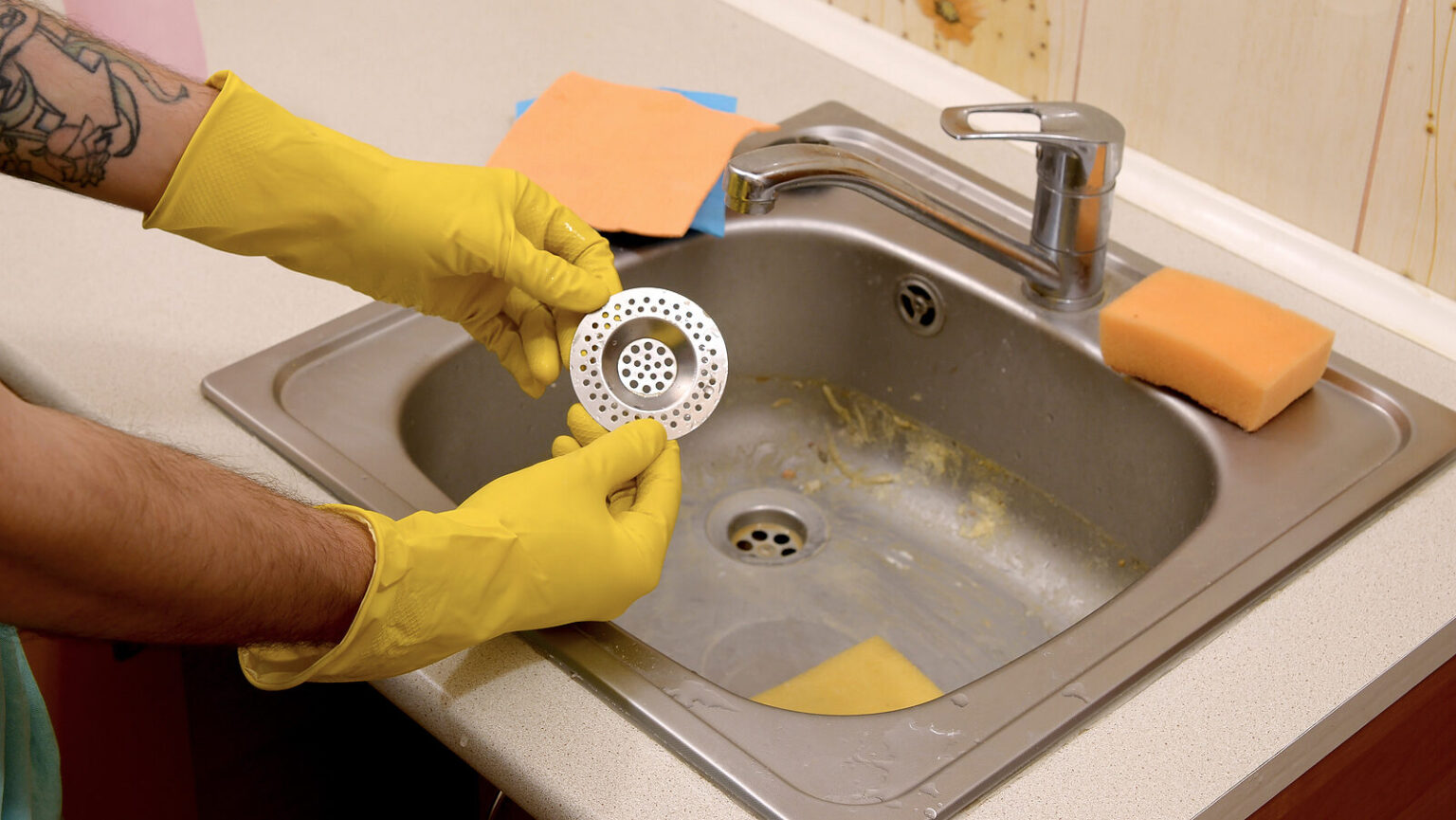







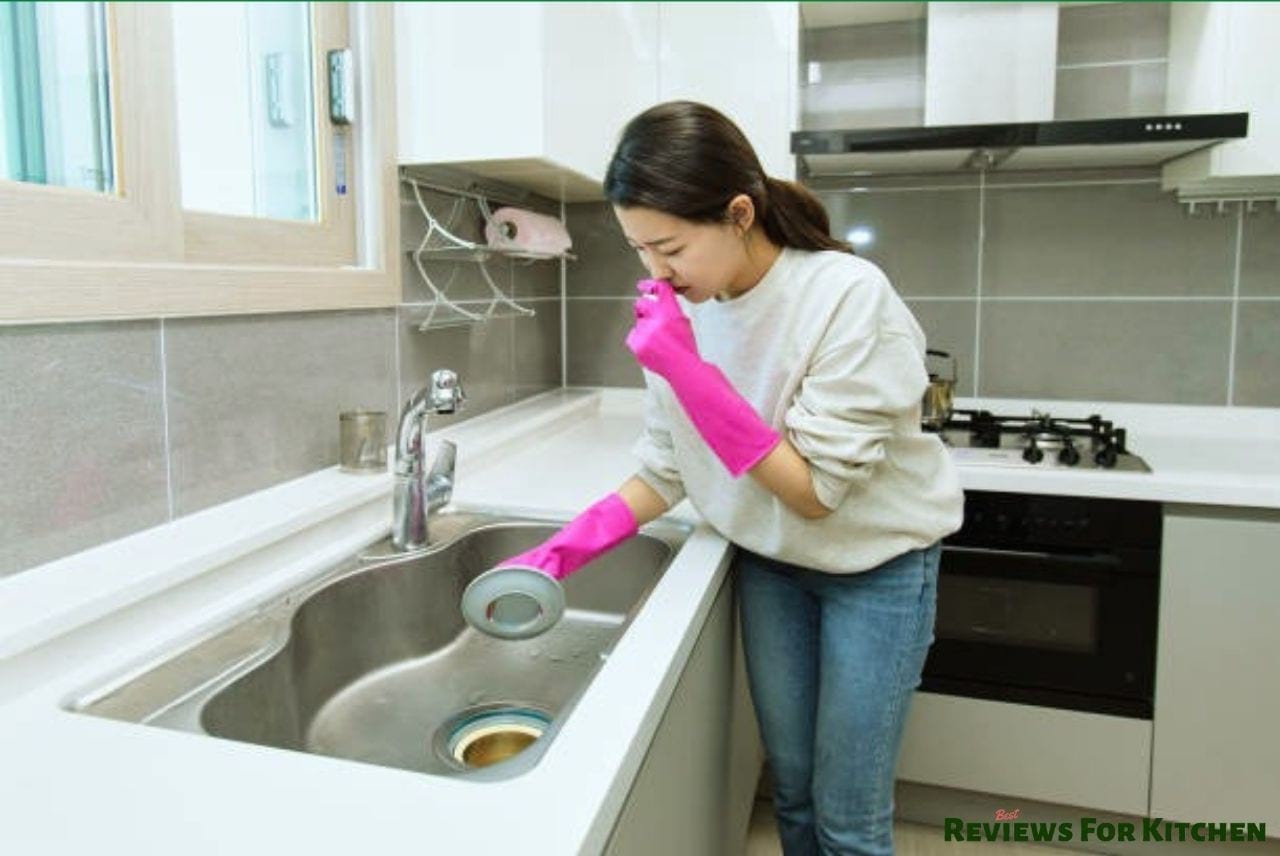
:max_bytes(150000):strip_icc()/why-does-my-kitchen-sink-smell-like-sewage-4707719_01-2030e27351fe4c6c9e1d94145dbbe30a.jpg)







